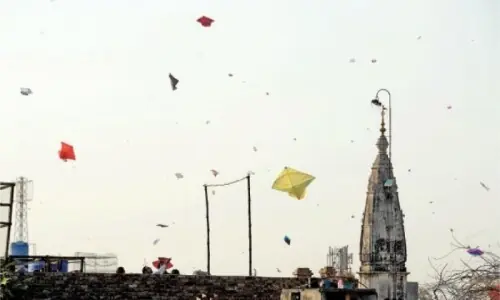LONDON, Oct 5: The UK’s commander in Helmand has dampened Britain’s hopes of a “decisive military victory” in Afghanistan saying that the aim of the mission was to ensure the Afghan army was able to manage the country on its own.
Brig Mark Carleton-Smith told the Sunday Times that this could involve discussing security with the Taliban.
He said that when international troops eventually leave Afghanistan, there might still be a “low but steady” level of rural insurgency.
He described as unrealistic to expect that multinational forces would be able to wipe out armed bands of insurgents in the country.
Brig Carleton-Smith’s comments echo the views of Sir Sherard Cowper-Coles, Britain’s ambassador in Kabul who the Times on Wednesday said in his communication with French diplomats had expressed the apprehension that the international troops were not winning in Afghanistan.
Foreign Secretary David Miliband in his interview to US Council of Foreign Affairs last week had also hinted that the aim of Britain was to help set up and strengthen the Afghan troops to take over the job of defence of their country rather than making Afghanistan a colony of Britain.
US-installed Afghan President Hamid Karzai in a recent statement had expressed the hope that Saudi Arabia would intervene to bring on board the moderate Taliban.
Brig Carleton-Smith is the Commander of 16 Air Assault Brigade which has just completed its second tour of Afghanistan.
He paid tribute to his forces and told the newspaper they had “taken the sting out of the Taliban for 2008”.
But he stated: “We’re not going to win this war.”
“It’s about reducing it to a manageable level of insurgency that’s not a strategic threat and can be managed by the Afghan army.”
Brig Carleton-Smith said the goal was to change how debates were resolved in the country so that violence was not the first option considered.
He said: “If the Taliban were prepared to sit on the other side of the table and talk about a political settlement, then that’s precisely the sort of progress that concludes insurgencies like this.”
“That shouldn’t make people uncomfortable.”
Since the start of operations in Afghanistan in 2001, 120 UK military personnel have been killed.
Reuters adds: Afghanistan’s Defence Minister Abdul Rahim Wardak expressed his disappointment on Sunday at the commander’s statements, maintaining the insurgency had to be defeated.
“I think this is the personal opinion of that commander,” Mr Wardak told journalists.
“The main objective of the Afghan government and the whole international community is that we have to defeat this war of terror and be successful,” he said.
Mr Wardak said success also depended on how British forces were approaching the problems they faced in Helmand but did not say whether their current strategy was the right one.
Asked if the commander’s comments came as a disappointment, Mr Wardak said: “Yes, it is disappointing, for sure.”
Britain has around 8,000 troops based in Afghanistan, most of them in the volatile southern province of Helmand, where they face daily battles with a growing insurgency.
NO NEGOTIATIONS WITH “INVADERS”
Nato commanders and diplomats have been saying for some time that the Taliban rebellion cannot be defeated by military means alone and that negotiations with the militants will ultimately be needed to bring an end to the conflict.
A spokesman for the Taliban said on Sunday there would be no negotiations with foreigners and repeated calls made by Taliban commanders for the unconditional withdrawal of the more than 70,000 US-led invading foreign troops from Afghanistan.
“They should know that Taliban will never hold talks with the invaders,” Taliban spokesman Qari Mohammad Yousuf told the Pakistan-based Afghan news agency, AIP.
“What we had said in the past, we also say once again, that foreign forces should leave without any condition,” he said.
Violence in Afghanistan has increased to its worst level since 2001, when US-led invading forces overthrew the ruling Taliban following the Sept. 11 attacks on the United States.

































